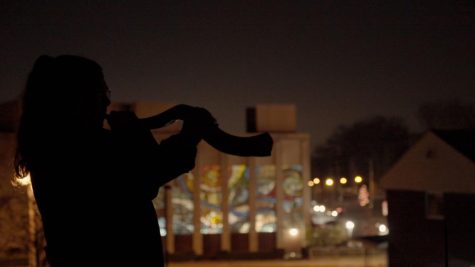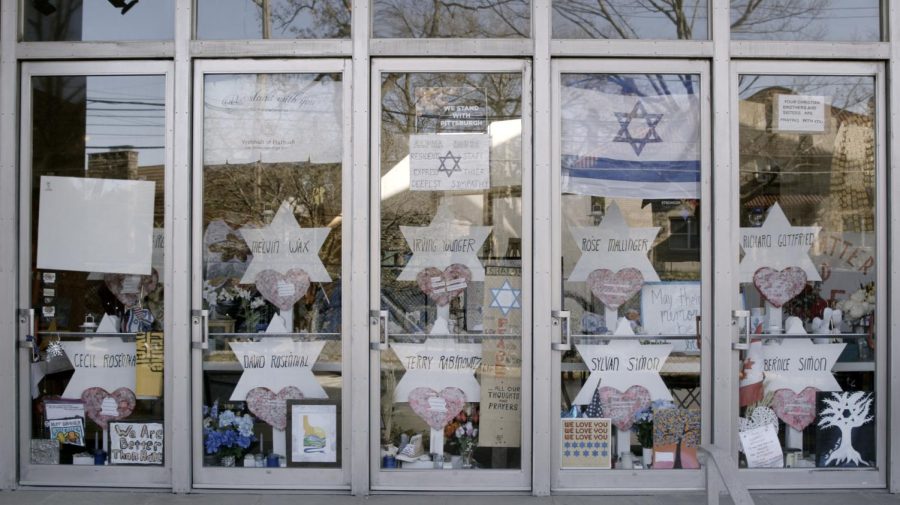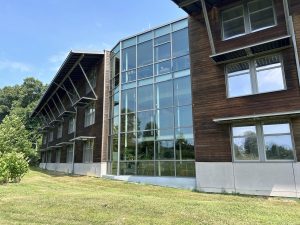Documentary covering the victims of Tree of Life shooting available to stream
November 10, 2022
HBO released “A Tree of Life: The Pittsburgh Synagogue Shooting” nearly four years to the day after the Oct. 27 mass shooting at the Tree of Life Synagogue in Squirrel Hill.
The film begins with the events of that day as told by the survivors against a backdrop of first responder footage before expanding its reach beyond Pittsburgh.
One of the documentary’s most thoughtful choices is to center its narrative wholly on the victims and the rise of antisemitism and anti-immigration rather than give screen time to the shooter. The shooter’s name is mentioned only three times. The victims mostly refer to him as “the man with the gun,” “the shooter” or “the gunman.” There are no “Dateline”-esque recreations of the events of that day. Director Trish Adlesic allows the survivors to speak uninterrupted as they explain where they hid, how they escaped, and who they lost.
Given the rise in popularity of true crime and the recent success of the Netflix dramatization of Jeffrey Dahmer, which was made without support from any of Dahmer’s victims, there is a version of this documentary that could be salacious. It would be the easier route to take, one that would disrespect the victims and survivors in the name of creating quick and exploitative content for the streaming generation. Less considerate documentaries filled with gratuitous images of trauma are made to be consumed rapidly, amounting to social media fodder that is forgotten when the next trauma is exploited.

“A Tree of Life: The Pittsburgh Synagogue Shooting” is not interested in being a trending topic. Its concern lies with the people who were fundamentally changed by the shooting. The film’s final moments are a montage of still photos of the members of the congregations who died that day. The documentary seeks to understand the grief and mourning of the survivors and what happened next.
Living in Pittsburgh, it’s easy to see that the community is still grieving, but the documentary doesn’t take advantage of this emotional state. Instead, the tone remains thoughtful and respectful. Adlesic understands that the true value of documenting a tragedy is in the consideration of those who lived through it and those who are no longer here to speak about it.
That’s not to say that Adlesic controlled her interviews with the survivors to encourage them all to repeat the same talking points. A wide array of emotions exists amongst the survivors in regard to the shooter.

Some don’t believe in the death penalty and others previously held that belief, but the events of Oct. 27 changed their opinions. Some would like the chance to sit down and talk with the shooter to try to understand him, and others will never say his name, let alone speak with him.
Adlesic gives all survivors the freedom to express their grief.“A Tree of Life: The Pittsburgh Synagogue Shooting” is stark. There’s no way around it. The documentary is a no-frills look at a wound that is still very much open and reaches far beyond Pittsburgh.







